Hijab Victim Suffered Repeated Blows To Her Head - Hospital Source
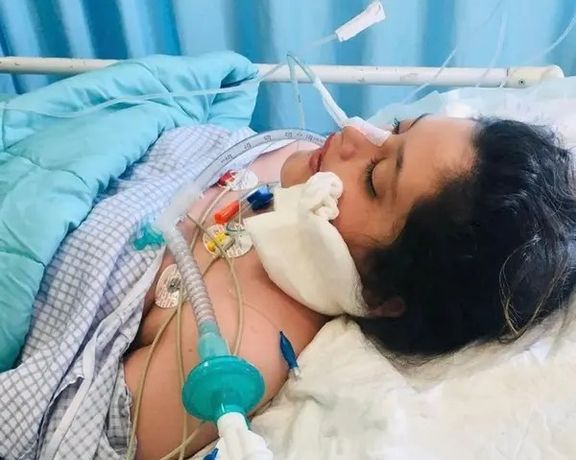
A source from the hospital where a young Iranian woman died of brain trauma told Iran International that her brain tissue was crushed after "multiple blows" to the head.

A source from the hospital where a young Iranian woman died of brain trauma told Iran International that her brain tissue was crushed after "multiple blows" to the head.
The source said on Saturday that Mahsa Amini was taken to Kasra Hospital in capital Tehran while she was not responsive and brain dead.
The 22-year-old who was arrested on Tuesday by the Islamic religious police was taken to hospital two hours later after losing consciousness. She passed away Friday afternoon at Kasra Hospital in northern Tehran. Originally from Saqqez in Kurdistan province, Amini was arrested in her brother’s car on a visit to the capital to see their relatives.
The source added that her lungs were filled with blood when she was transferred to the hospital and it was clear that she “could not be revived."
This source emphasized that Mahsa's condition "was such that she could not be saved nor was surgery possible because her brain tissue was seriously damaged and it was clear that the patient was not injured by a single punch and must have received many blows to her head."
If a person's head is injured in an accident, the patient may have a chance to survive through removing the hematoma, but in the case of Mahsa, the damage was so extensive that surgery was not possible, the source said.
A photo of Mahsa on the hospital bed showed her unconscious with very clear signs of bleeding from her right ear. Several doctors including Mahdiar Saeedian, editor of a health magazine, have pointed out on social media that otorrhagia (hemorrhage from ears) proves that her coma was caused by trauma to the head.
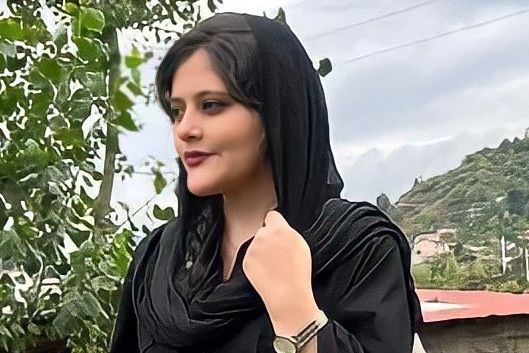
Iran's Security forces attacked protesters Saturday after the burial of a young woman who died following a brain injury while in the custody of hijab police.
Footage from social media shows riot police directly aiming to fire at protesters and throwing stones at them outside the city governor's office where they had gathered chanting anti-government slogans. Gunshots are clearly heard in videos posted on social media which also show the use of tear gas against protesters.
Originally from Saqqez in Kurdistan Province, the 22-year-old Mahsa Amini, known as Zhina to family, collapsed at a detention center two hours after her arrest by the morality police in Tehran. She passed away Friday afternoon at Kasra Hospital in northern Tehran.
A hospital source told Iran International Saturday evening that her brain tissue had been seriously damaged because of multiple blows to the head and there was no chance of surgery.
The source said authorities demanded that she be kept alive for longer than 24 hours to circumvent a legal requirement for an investigation by the coroner.
According to social media reports, several protesters were injured with shotgun birdshots. In one of the videos protesters are seen rushing a young man with head injuries to a nearby hospital. He has been identified as Kian Derakhshan and is still in hospital in critical condition.
Hengaw Human Rights Organization, a Kurdish rights group, has identified another young man seriously wounded by security forces in Saqqez as Parsa Sehat.
Protesters in Saqqez chanted “Down With the Dictator” and “Our Shame, Our Foolish Leader” at the burial ceremony attended by thousands of locals and later outside the governor’s office and a large banner with Supreme Leader Ali Khamenei’s photo was set on fire.
“Zhina was martyred. She was martyred for all the young people of this country and has opened the road to freedom for all of us,” her aunt wailed and cried in Kurdish at her grave as seen in one of the videos posted on social media. “Our darling Zhina, you will not die. Your name will become a symbol,” a temporary stone to mark the young woman’s grave read.
Activists say the family resisted pressure from security and intelligence forces who wanted to bury their daughter under the cover of darkness to avoid a gathering of people at the cemetery where many of the female participants in the ceremony later removed their headscarves and waved them chanting slogans against compulsory hijab.
Social media reports also indicate that security forces fired tear gas at protesters in Sanandaj, capital of Kurdistan Province, where thousands of angry residents took to the street Saturday evening to protest the young woman’s death in custodyand against forced hijab for which she was arrested.
“Saqqez is not alone, Sanandaj Stands With It,” Protesters in Sanandaj chanted in the local Kurdish language. They also shouted “scoundrels” in Persian at security forces.
According to social media reports, the government has dusruptd internet access in the Kurdish cities of Saqqez, Baneh, Marivan, and Sanandaj. Global internet watchdog Netblocks also said Friday evening it had registered a significant internet outage in Tehran with real time network data showing connectivity at 67% of ordinary levels amid protests over Amini’s death in the capital which could affect coverage of events on the ground.
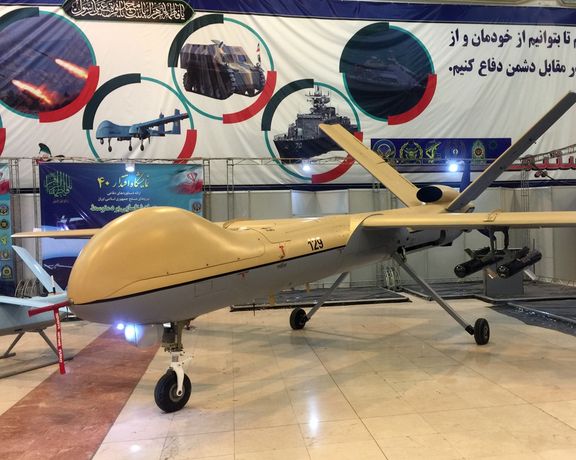
Iranian suicide drones supplied to Russia are inflicting losses on Ukrainian forces in the Kharkiv region, The Wall Street Journal reported Saturday.
Ukrainian military officers told the Journal that the drones, thought to be Shahed-136 UAVs operate in pairs, one targeting nearby radar as the second one locks on its target and slams into it. The drones have hit several Ukrainian armored vehicles and artillery batteries.
The United States warned in July that Russia was planning to acquire military drones from Iran, which has made significant progress in developing UAVs to compensate for its lack of an effective air force.
The Biden Administration has been negotiating with Iran since April 2021 to achieve to revive a nuclear deal that restricted Tehran’s uranium enrichment program. In exchange for lifting economic sanctions. The negotiations are currently stalled as Washington says Iran has made unacceptable demands.
Opponents of the deal argue that the US should not lift the sanctions and instead should intensify pressure as Iran’s economy faces serious challenges after four years US restrictions on its oil exports and international banking.
Iran is a close ally of Russia and the two countries closely collaborated in the Syrian war, where Moscow supplied air power and Tehran deployed thousands of militias against rebel forces.
Col. Rodion Kulagin of the Ukrainian army told the WSJ that “he hoped the U.S. and allies could provide Ukraine with more advanced antidrone technologies, or would step in to disrupt Iranian drone shipments to Russia.”
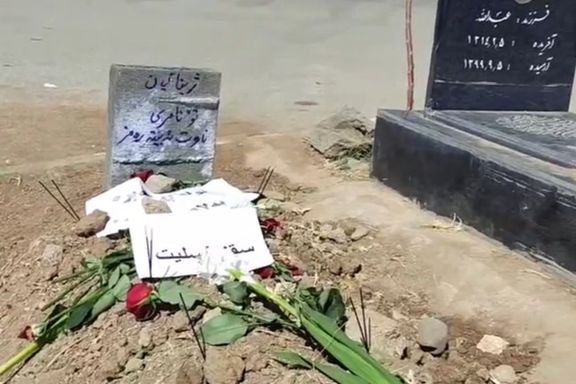
The shocking death of a young woman detained by Iran’s religious police has compelled officials to show some reaction, amid intense public indignation and anger.
Mahsa Amini, a 22-year-old woman visiting Tehran from her native Kurdistan province was arrested by a hijab police patrol for not covering her hair properly. Immediately after her detention she received a severe head trauma and when two hours later she was transferred to hospital she was already in coma and brain dead.
Part of the political elite has shown rare sympathy for a citizen that many people see as the victim of the regime’s policies and the brutality of its agents. But judging by reactions on social media, not many people believe in these expressions of sympathy, some saying that politicians are after gaining credit from the incident.
Some politicians have criticized the hijab patrols, stopping women on the streets for their loose headscarves, but many on social media say the problem has gone beyond that and it is the clerical regime that is the root of this and similar draconian measures.
Nevertheless, many hardliners are defiant and defend the regime in the tragic incident.
Vice President Ensieh Khazali who has been under attack in recent days for her son having emigrated to Canada, denied the existence of hijab squads which are more than visible in the Iranian streets.
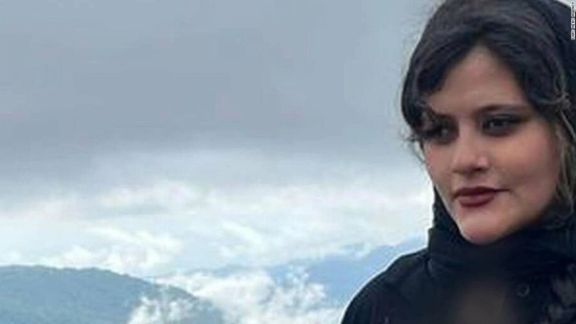
Although Iran's reformists have at times reacted to social events, this is the first time hardliners such as Khazali feel the responsibility to be accountable, but they still evade genuine regrets and express support for the wrong side of the argument.
Interior Minister Ahmad Vahidi wrote in a tweet that he has appointed one of his deputies to investigate the case. Many to his tweet, often harshly criticizing the way the government is handling the case and the issue of hijab and civil liberties in general.
IRGC-linked Fars news agency tried in an utterly fabricated report to whitewash the event by quoting unnamed "reliable sources" as saying that the young woman was ill before being arrested and taken to the notorious Vozara police station in Tehran.
Some Iranian hardliner lawmakers have expressed often vague opinions about the alleged murder. Lawmaker Hassan Lotfi told reporters that he is too busy and that he has not heard about the death of the young woman. He further advised Iranian women to observe the compulsory hijab rules.
Several other conservative lawmakers such as hardliner Jalal Rashidi Kouchi have also promised to follow up the case and end such "bitter events that are against religious teachings". Social media users have reminded other netizens that the MPs made many promises on other matters but failed to stand by their word.
On the reform front former IRGC Navy Commander Hossein Alaei called for a thorough investigation of the hijab squads. He has cautiously suggested that the not only the squads have failed to change Iranian women's lifestyle, but their behavior has led some of women to oppose the compulsory hijab. He further suggested that the hijab squad personnel should be assigned to necessary jobs such as tackling theft and muggings in the streets.
Other pro-reform figures such as former President Mohammad Khatami and politician Gholamhossein Karbaschi seemed to be concerned more about what the tragic event can do to the prestige of the regime. Former lawmaker Ali Motahari also wrote that he feared that the death in custody of Mahsa Amini could portray the Iranian government internationally as an entity like the Taliban in Afghanistan.
Pro-reform commentator Majld Tafreshi also called for an investigation into the case and expressed concern that anti-Iran elements might take advantage of the event.
One of the reformist Green Movement leaders Mehdi Karroubi said in his condolence message that the Islamic Republic’s Supreme Leader Ali Khamenei has obstructed all avenues for reforms in Iran.
Some former officials and presidential candidates such as Mohsen Mehralizadeh and Abdolnasser Hemmati also mildly expressed regret for what had happened but did not point fingers at anyone. Former Vice Pesident Es'haq Jahangiri simply said that "You cannot ignore such bitter events. Stop this kind of behavior," without making clear who he was addressing.
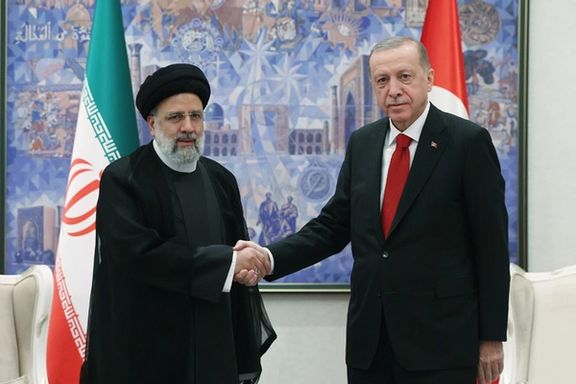
Iran’s President Ebrahim Raisi says Tehran is against any change in the historical and geopolitical borders of the region, calling it unacceptable.
Raisi made the remarks during a meeting with his Turkish counterpart Recep Tayyip Erdoğan on the sidelines of the of the 22nd Shanghai Cooperation Organization (SCO) summit in the Uzbek city of Samarkand Friday, in an apparent reference to escalation of decades-old hostilities between neighbors Armenia and Azerbaijan.
“The basis of our policy in the region is that the fate of the countries is determined by themselves and their national sovereignty and territorial integrity are respected,” he said.
Touching on the developments in the South Caucasus, he emphasized Tehran welcomes “the liberation” of Nagorno-Karabakh, and expressed Iran’s readiness to partake in reconstruction projects in the region.
Iran has to an extent supported Armenia in the conflict with Azerbaijan and has warned that it would not allow any seizure of territory from Armenia proper by Baku. Tehran in the past has also expressed alarm at alleged Israeli military presence in Azerbaijan. Foreign Minister Hossein Amir-Abdollahian also warned in October 2021 that Iran will not tolerate "geopolitical change" in the region and at the borders.
In the latest bout of clashes in September, Armenia said that scores of its soldiers had been killed in clashes along the border with Azerbaijan after a sharp escalation in hostilities which prompted Russia and the United States to call for restraint.
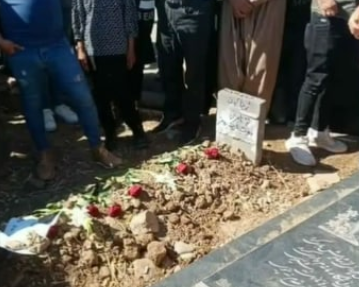
Iran’s security forces in the western city of Saqqez have used pellet guns and tear gas against protesters following the burial of Mahsa Amini, a young woman who died in the hands of hijab police.
According to videos obtained by Iran International on Saturday, several protesters were injured when security forces fired at rally outside the building of the governor's office.
People were chanting slogans against the authorities and sought justice for the perpetrators of the crime at the protest rally as well as during her funeral service at a graveyard in her hometown.
The 22-year-old Mahsa Amini who was arrested on Tuesday by the morality police, was taken to hospital two hours later after losing consciousness. She passed away Friday afternoon at Kasra Hospital in northern Tehran. Originally from Saqqez in Kurdistan province, Amini was arrested in her brother’s car on a visit to the capital to see their relatives.
Condemning her death, Amnesty International called on Friday for an investigation of the circumstances leading to her suspicious death.
On Friday night, protests were held in several locations in Tehran -- including outside Tehran's Kasra hospital where she died -- in which people chanted slogans such as “Death to Khamenei,” “Death to Oppressors,” and "We Will Kill Those Who Killed Our Sister".
In recent months government and security agencies have intensified their efforts to pressure women into abiding by the hijab laws and several rounds of anti-hijab civil disobedience campaigns have followed.
Patrols by ‘morality police’ have increased on the streets and videos of violent arrests of women and girls as well as confrontations between people and hijab enforcers.